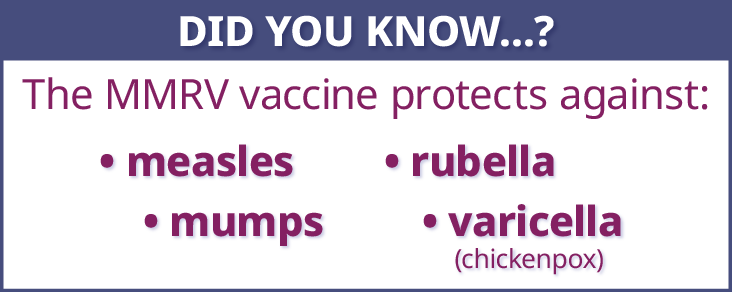Thanks to dedicated vaccination efforts the United States has been polio free since 1979.
In 2000 the United States had achieved measles elimination, meaning cases of transmission within the U.S. had ceased for a year. After that, however, the disease rebounded and since then cases of measles transmission within the U.S. have continued to rise in number with 23 outbreaks causing 383 cases in 2014 and 5 outbreaks causing 189 cases in 2015.
There was a 99 percent decrease in mumps following the introduction of the mumps vaccination program in 1967. Yet, 6,500 cases were reported in the US in 2006; 2,612 in 2010; and 1,223 in 2014. Incidence of pertussis (whooping cough) sharply declined with the introduction of the first pertussis vaccine in 1949, yet since 2004 the U.S. has been experiencing a gradual increase in the incidence of pertussis.
The majority of these cases were among the unvaccinated, or those with incomplete or unknown vaccination status.
Many people might be surprised at the notion of vaccine refusal. After all, vaccination is a commonly accepted practice. Vaccination for infectious diseases according to the schedule recommended by the Advisory Committee on Immunization Practices (ACIP) is endorsed by virtually all professional societies.
Vaccination has become a “given” with routine well visits in the first year of life, periodically as children progress though various stages of life and even though adulthood. So why the controversy?
The origin can largely be attributed to a report in 1972 titled “DPT [diptheria, pertussis, tetanus] Vaccine Roulette”. The report had a good deal of misrepresentation of facts, outright false information, and was backed up by individuals with questionable credentials. The movement was further fueled by an article published in a British medical publication,
The Lancet, in 1998, based on a mere 12 cases linking the MMR vaccine to autism. The Lancet has since retracted the article following an investigation by the United Kingdom General Medical Council in which the author was found to have committed fraud and misconduct.
The findings of his study were fabricated and he lost his license to practice medicine. However, by then it was too late, the genie was out of the bottle. Since that time, the internet has given a platform which allows widespread publication of purported scientific information without any boundaries or peer.
It is understandable that parents who may hear of bad results regarding vaccination could become fearful of immunizing their otherwise healthy baby. The best way to approach these concerns is to write them down and ask your physician to go over them with you in order to give you a better understanding of why vaccination is accepted as one of the best preventive health care measures available.
Stick to well recognized, authoritative internet sites such as the Centers for Disease Control, Cleveland or Mayo Clinic, the National Foundation for Infectious Diseases and any of the professional societies sites. Look at any Internet source with alternative perspectives with a critical eye recognizing that they do not need to justify claims to any scientific scrutiny. In the end your physician, physician assistant, or nurse practitioner is truly your best source of information regarding medical issues.
Remember, vaccination is one of the most studied and regulated medical practices that exists today. It is one of the most profound medical advances of the modern age and is responsible for the elimination of small pox, polio and near eradication of measles. It is your child’s best shot at a long and healthy life.
Lori Boyle is a nurse practitioner with the Hillsborough-based ID Care, a member of Voices for Vaccines, Nurses Who Vaccinate and the NJ Immunization Network

